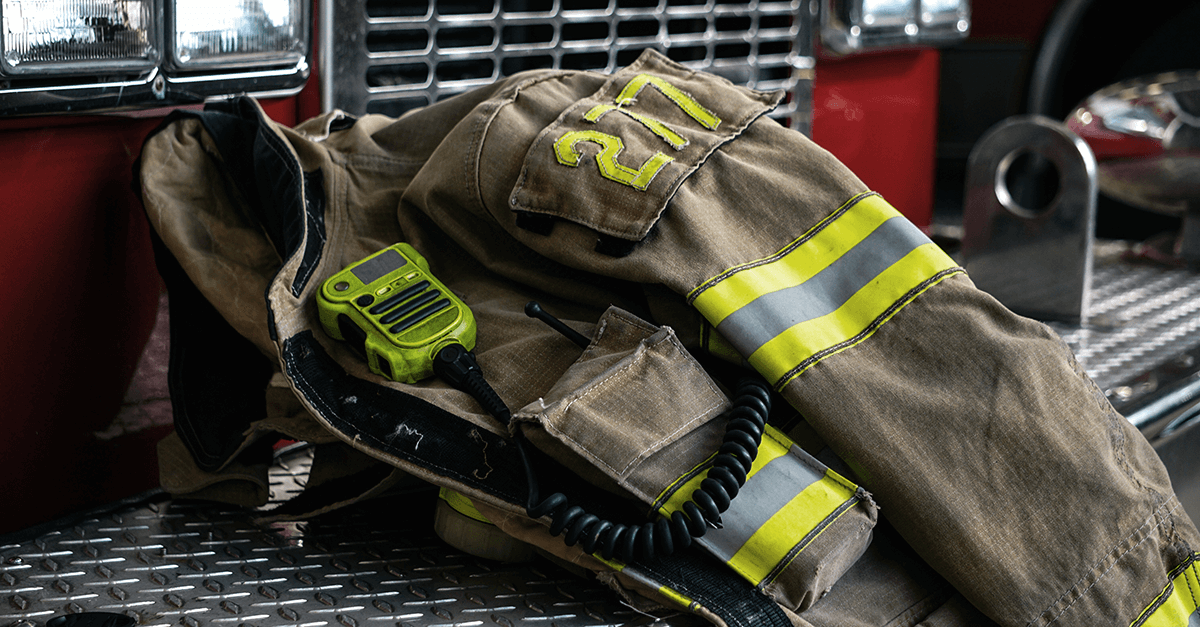21 years after the horrific events of 9/11, many brave first responders are still fighting. Over 14,000 first responders have developed cancer stemming from the catastrophic damage from the terrorist attacks. Toxic substances like asbestos were used to build the Twin Towers of the World Trade Center, and were released into the air in the destruction. Thankfully, help is available for affected first responders and civilian survivors.
9/11 Hero’s Death One of Many of First Responder Tragedies
When first responders in the small New York hamlet of Versailles learned of the attack at the World Trade Center on September 11, 2001, they sprang into action. Nine first responders — including Nick and Margaret Ursta — headed to Manhattan to join forces with search and rescue teams.
Sadly, Nick Ursta would give his life for his service decades later. In 2019, he succumbed to mesothelioma, a fatal cancer, after breathing in deadly asbestos particles at Ground Zero. He was just 52 years old.
“He was an amazing man and will be highly missed. There will never be anyone else like him.”
– Margaret Ursta, 9/11 First Responder & Mesothelioma Widow
The Urstas are not alone. Over 14,000 first responders have been diagnosed with various cancers in the fallout of the attacks, according to the Centers for Disease Control and Prevention (CDC). Roughly 1,000 of those diagnosed have died.
As we remember the 21st anniversary of 9/11, the Mesothelioma Veterans Center thanks everyone who answered the call. We will never forget your bravery, selflessness, and sacrifices.
It’s important to know that help is available If you or a loved one was a 9/11 first responder or survivor who developed mesothelioma or another illness. Contact our team to learn more.
Why Are 9/11 First Responders at Risk of Cancers Like Mesothelioma?
9/11 first responders and survivors were put at risk of cancer and other illnesses from enormous amounts of dust flying into the air from the destruction of the attacks.
This dust contained asbestos — a known cancer-causing substance — along with lead, glass, and other materials used to build the Twin Towers.
“Oh, my goodness, dust was everywhere and asbestos was everywhere, we would learn later.”
– Margaret Ursta, 9/11 First Responder & Mesothelioma Widow
Asbestos remains the only known cause of mesothelioma. This incurable cancer usually develops 10-50 years after exposure to asbestos fibers. It forms in the linings of major organs like the lungs, abdomen, testicles, or heart – and is almost always fatal.
Mesothelioma is not the only cancer linked to 9/11, though. The CDC found that skin cancer, prostate cancer, breast cancer, lung cancer, and a wide variety of others have all been linked to the attacks.
Thousands also suffer from noncancerous illnesses and mental health problems like post-traumatic stress disorder (PTSD).
Doctors Concerned About Cancer Rates Among 9/11 First Responders, Survivors
Health care professionals like Dr. Michael Crane, who works to treat those with illnesses related to 9/11, remain concerned that many more people will get sick due to the fallout.
According to a 2018 NBC interview with Dr. Crane, 3,500 cancer cases linked to the events of 9/11 have involved treatable skin cancer. The number of skin cancer cases among survivors was higher when compared to the rest of the general population.
“Some of the toxic exposures…the effects of those are now due.”
– Dr. Michael Crane
Crane was initially afraid that there would be an epidemic of lung cancer cases stemming from the attacks. While this has not happened yet, he continues to see a steady stream of patients.
Help for Those Afflicted by 9/11 Toxins
9/11 first responders and survivors dealing with mesothelioma, other cancers, or non-cancerous health problems deserve the best treatment available. Thankfully, they can get just that through the World Trade Center Health Program.
This program was established in 2010 and covers medical expenses like co-pays, deductibles, and out-of-pocket expenses for those who qualify. Currently, over 111,000 people are enrolled in the program. First responders and survivors can even enroll as a precaution, even if they are not sick.
Survivors and responders can also pursue compensation from the September 11th Victim Compensation Fund. Over 40,000 claimants have received over $9 billion in funds as of 2022.
These programs can help those like Rob Serra, a firefighter who responded to the attacks when he was just 21 years old. Serra remembered that everyone had “a half-inch of white paste on their face” following the attacks. He now suffers from sinus and neurological damage as a result of his time serving at Ground Zero.
“You figure two buildings full of glass, asbestos, steel. You could taste it.”
– Rob Serra, 9/11 First Responder
9/11: Never Forget
The horrific attacks on 9/11 — and the selfless bravery of first responders — are etched into history forever. The U.S. government has made efforts to ensure anyone who develops health problems like mesothelioma from the aftermath will get the help they need.
The entire Mesothelioma Veterans Center team stands by first responders and survivors who may be struggling even decades later. Your sacrifices and heroism will never be forgotten.

